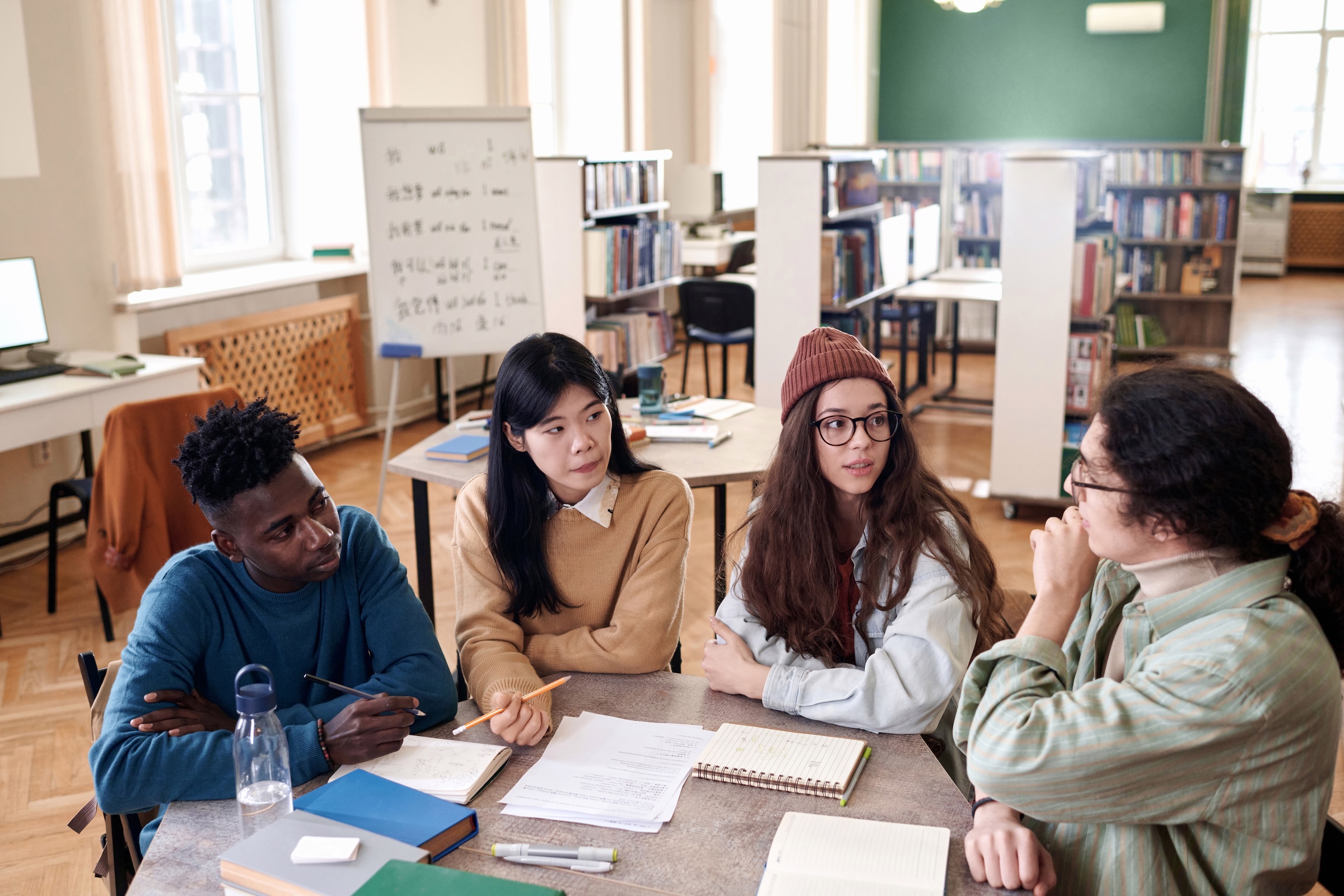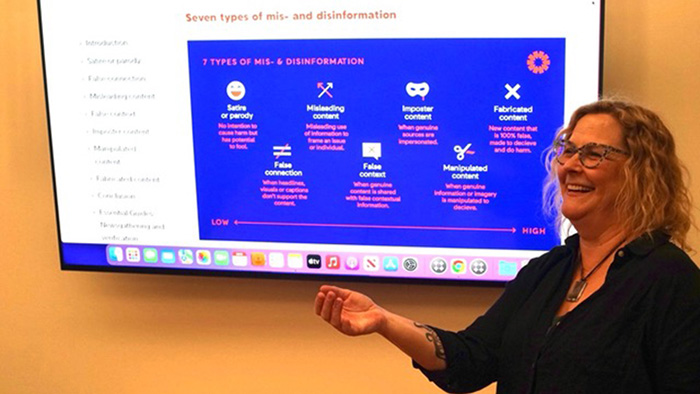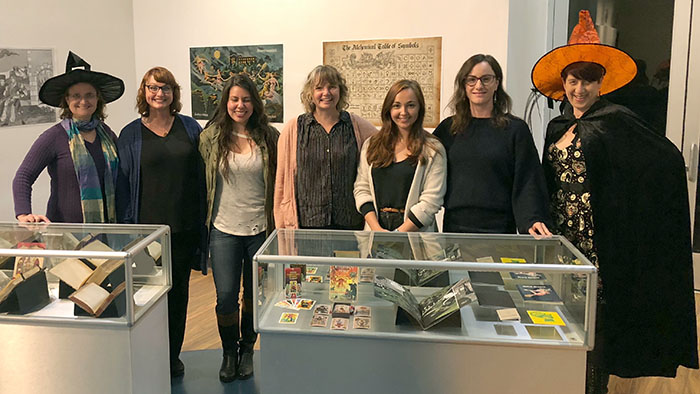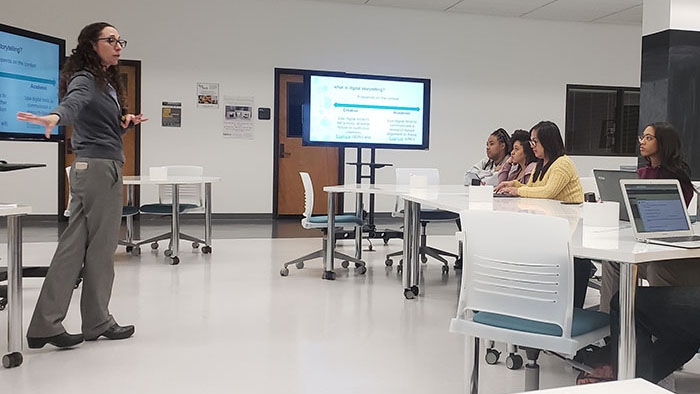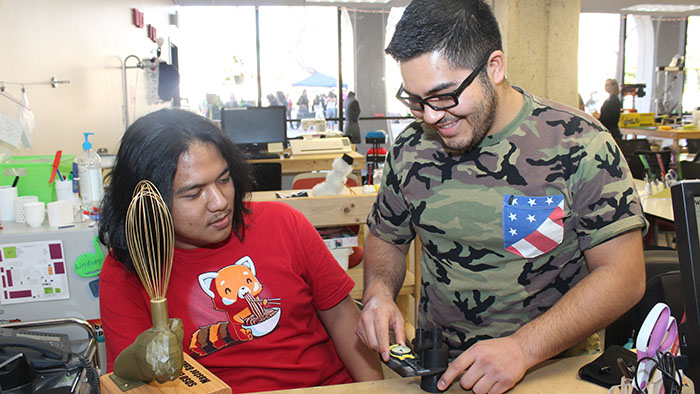Library Instruction Program
What We Offer
The Library Instruction Program at San Diego State University offers instruction sessions to support student research and critical inquiry. Our interactive and hands-on instruction sessions help students to leverage their existing skills, develop critical thinking and information literacy, and take full advantage of the library’s vast services and print & digital resources.
Instruction for Lower Division Writing & General Studies
An interactive introduction to library research. We will customize this session to match your research assignment
Instruction for All Other Subject Areas
Librarians offer research consultations and various modalities of instruction. For more information about what is available, reach out to these librarians directly.
Library faculty in Special Collections offer a variety of instructional experiences including basic research orientations and specialized sessions that incorporate course- or assignment-based resources and activities.
Library Centers
Home of the SDSU's interdisciplinary Digital Humanities Initiative, which takes a critical stance towards digital technology and focuses its work on equity, diversity, inclusion, and social justice.
A student-run makerspace designed to foster creativity and innovation by providing an infrastructure for the DIY learning of technology, build IT assists anyone in their mission of bringing their ideas to life.
Lead time:
To allow for enough time to prepare for the session and ensure a room is available please submit your instruction requests at least two weeks prior to the session.
Help your students to get the most out of library instruction:
We have found that there are a couple of things that help students to benefit most from a library instruction session:- Students are familiar with the assignment before the session
- Students have chosen a research topic, or a few topics they are exploring
If you have any questions contact our Instruction Librarian, Suzanne Maguire at [email protected] or 619-594-0193.


